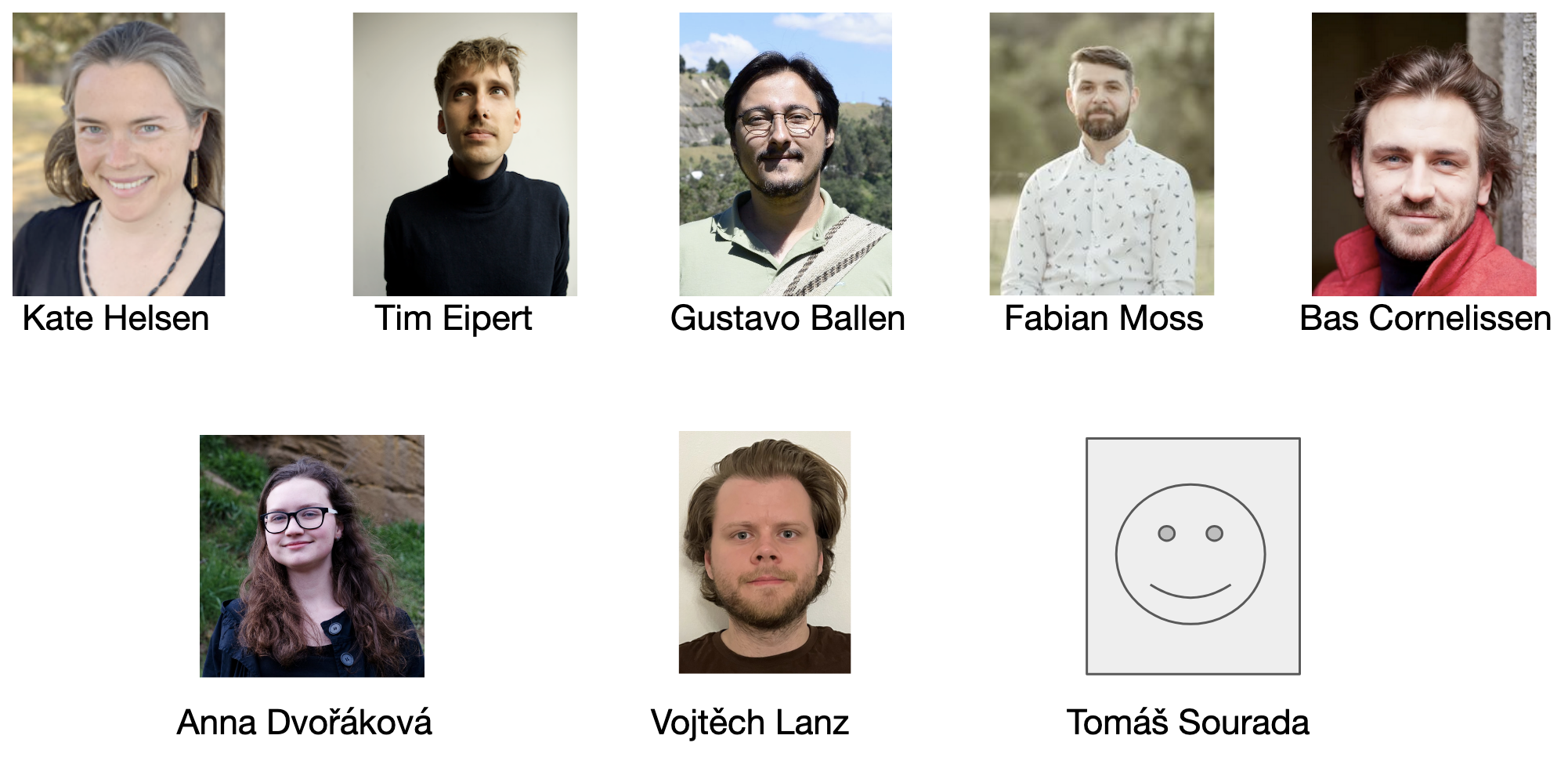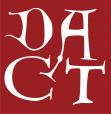


Institute of Formal and Applied Linguistics
Charles University, Czech Republic
Faculty of Mathematics and Physics
DACT
Chant Analytics
The Digital Analysis of Chant Transmission (DACT) is a Partnership Grant funded by the Social Sciences and Humanities Research Council of Canada (grant no. 895-2023-1002). It aims to extend the study of the dissemination of plainchant from localized research focused mostly on Europe and the Middle Ages to global research tracing transmission to other continents through to the modern era. Understanding how chant traveled and adapted over time and place through oral and written traditions is important for what it can tell us about the communication of culture through the encounters of people and ideas. Yet, data management when dealing with a thousand years of music is a major obstacle. To address this problem, DACT is mobilizing a large network of people and projects to analyse chant repertories digitally and to develop new computational resources in tandem with existing chant databases and digital repositories of manuscripts.
UFAL is the host institution for the Chant Analytics team, which is led by Jan Hajič jr. The team is developing computational tools for the study of chant transmission, both of melody and repertoire, and doing research using these tools, especially to evaluate their effectiveness and accuracy. The team members are:
Prof. Mark Daley
And the student team members at UFAL (who are in fact doing most of the work!) are Mgr. Vojtěch Lanz and Bc. Anna Dvořáková, with hope that they will be joined by Bc. Tomáš Sourada.
The Faces of Chant Analytics

News
2025-02-28 The PyCantus library, first planned out at the DACT Chant Analytics workshop in Prague, has started development in the capable hands of Anna Dvořáková. If you have any plans for working with
2025-03-14 We presented the ChantMapper and ChantLab apps to the broader DACT community. Happy to say both live demos went fine. (Addendum: I learned recently that also Emma Hornby's group in Bristol has been playing around with ChantLab recently, and it also didn't crash with 4 people working on it in parallel... so it may actually have become rather stable software, after 4 years of intermittent development.)
2025-02-14 ChantMapper and ChantLab accepted to the Music Encoding Conference 2025! Congratulations to both Vojtěch and Anna (especially Anna, for whom this marks her first publication, and having published the results from her Bc. thesis). We hope to see many members of the digital musicology community at MEC.
2024-09-10 Congratulations to Anna Dvořáková on successfully defending her Bachelor thesis on the subject of mapping and clustering Gregorian sources! (Thesis is in Czech, though.)
2024-06-06 A DACT Chant Analytics workshop took place in Prague, with Kate Helsen participating remotely and Tim Eipert in person.
2024-04-06 It was terribly exciting to meet so much of our DACT colleagues in person at the 18th Workshop in Halifax! Learning about chant in Mexico City and its Chinese redactions was absolutely fascinating. This is what I love about working in the digital humanities: there is always more to learn about the world. Check out the Vincent Lebbe Chinese edition of chant on YouTube.
2023-11-10 A pleasure, as always, to present at the DLfM conference co-located with ISMIR 2025 in Milan. We showed that contrary to previous results, text boundaries actually do not lead to a segmentation of melody that better characterises mode in Gregorian antiphons.
2023-11-08 Waves have been made at ISMIR with a paper on phylogenetic trees and chant melody. We got spotlighted (thanks, Uri)!
Partners
The DACT project has the following partners:
- Dalhousie University, Halifax, Nova Scotia, Canada [Host Institution]
- ACENET, Supercomputing in Atlantic Canada
- Bodleian Libraries, University of Oxford, UK
- Cape Breton University, Sydney, Nova Scotia, Canada
- Hill Museum and Manuscript Library, Collegeville, Minnesota, USA
- Hungarian Academy of Sciences, Budapest, Hungary, Research Centre for the Humanities, Institute for Musicology
- McGill University, Montréal, Québec, Canada, Schulich School of Music
- Mount Allison University, Sackville, New Brunswick, Canada
- Polish Academy of Sciences, Warszawa, Poland, Institute of Art
- RISM Digital Center, Bern, Switzerland
- Slovak Academy of Sciences, Institute of Musicology, Bratislava, Slovakia
- Unama'ki College, Sydney, Nova Scotia, Canada
- Universidad Complutense de Madrid, Spain, Musica Hispanica / Spanish Early Music Manuscripts
- Universidade NOVA de Lisboa, Faculdade de Ciências Sociais e Humanas, Lisbon, Portugal, Centro de Estudos de Sociologia e Estética Musical, (Centre for the Study of the Sociology and Aesthetics of Music CESEM)
- Université de Fribourg, Switzerland, e-codices, Fragmentarium
- University of Manitoba, Winnipeg, Manitoba, Canada
- University of Missouri-Kansas City, USA, CODICES: Digital Humanities Lab
- University of Oslo, Norway, BENEDICAMUS project
- University of Oxford, UK, DIAMM (the Digital Image Archive of Medieval Music)
- University of Waterloo, Ontario, Canada, Cantus: A Database for Latin Ecclesiastical Chant
- Wilfrid Laurier University, Waterloo, Ontario, Canada
